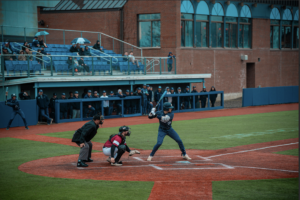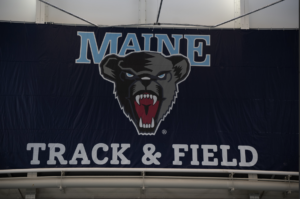While baseball is one of America’s most beloved sports, its history has not always been smooth sailing. On April 13, 1972, the first Major League Baseball (MLB) strike ended after 12 days.
The strike was agreed upon by the players, as well as the Major League Baseball Players Association’s leader, Marvin Miller. The driving force behind the strike was the player’s desire for compensation after their careers had ended, as well as a demand for salary arbitration. After the strike ended, the MLB agreed on a $500,000 increase in pension-fund payments. Salary arbitration, which is the process through which players who have played for the MLB for a certain amount of years are able to choose from a salary that best fits their skill-set, was not introduced to the league until 1974.
The introduction of the measures allowed for job-and wage-security for the players, as well as creating an environment where players had the opportunity to get paid a fair market rate, after establishing their staying power within the MLB.
The strike encompassed 86 games during that season, and the games were never played because the league was determined to avoid paying the players for the time that they had decided to strike. This led to some teams playing nine fewer games than usual and allowed the Detroit Tigers to be named the AL East champions, as they held a half-game lead over the Boston Red Sox. This was due to the Red Sox having played one less game throughout the season.
While this was the first time a strike would affect the MLB, it was not the last. The following year, a lockout affected the MLB, as the league tried to decide how to implement salary arbitration. The lockout only affected the spring training of the 1973 season, however, and no games were missed that year.
One of the most notorious labor disputes in baseball history occurred during the 1981 strike, when the league was unable to agree with the league on free-agent compensation. This strike began on June 12, 1981 and ended on July 31, 1981. The strike was voted on in May of that year, when the executive board of the MLB Players Association unanimously agreed in favor of a strike to determine free-agent compensation. Sources report that people around the country felt as though the MLB owners were responsible for the strike, as many owners felt as though they deserved compensation after losing a free-agent player to another team, while the players felt as though this principle undermined the value of free-agency.
Game-play resumed on August 9, but only after multiple regular-season games were cancelled. This cancellation led to another season where various teams had played an uneven amount of games.
The culmination of the tensions between players and the league would play out during the strike of the 1994-95 season. The strike, like those prior to it, was prompted by a labor issue. It started on August 12, 1994 and continued into the 1995 season, causing the MLB to miss the 1994 World Series. The strike ceased only after it was suspended on April 2, 1995, after lasting for a duration of 232 days. At the time, it was the longest strike in major league professional sports and was only surpassed by the 2005 NHL lockout which lasted for 310 days.
The 94-95 strike was motivated by a proposed salary cap on players income by the MLB owners, who were trying to respond to a worsening financial situation in Major League Baseball at the time. The proposed amendments would have negated salary arbitration that was approved only two decades earlier, as well as postponing free agency motions for another two years. A proposal to end the strike by agreeing to let teams play with replacement players was rejected, as this violated labor laws in Canada and excluded Canadian teams from the deal. After a failed negotiation ordered by President Bill Clinton during January of the 1995 season, the owners revealed that they would revoke the proposed salary cap and returned to the prior agreement.
Currently, many people feel as though Major League Baseball is on the brink of another strike; reports note that player’s salaries have stagnated, while ticket prices climb. Now, many fans feel as though it is up to the players to once again challenge the major league owners and take control over their salary benefits in order for America’s favorite pastime to continue to thrive.






